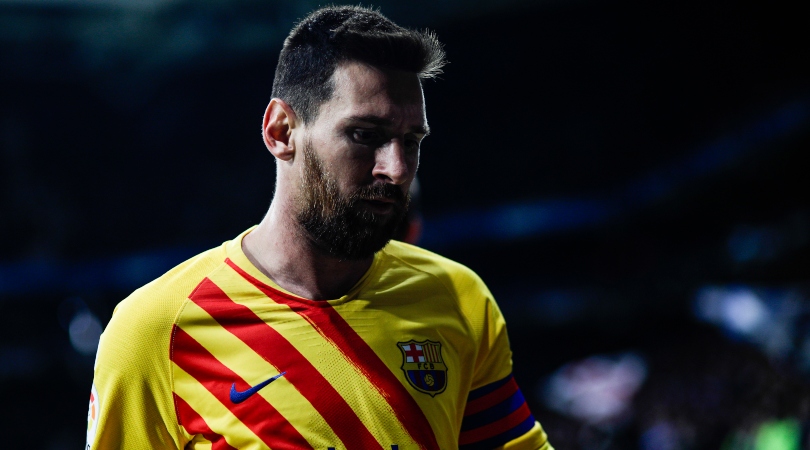8 things Barcelona and Real Madrid must do to regain their stranglehold on Europe
With the La Liga giants both suffering ignominous exits last term, we take at look at how the pair can dominate the Champions League once more
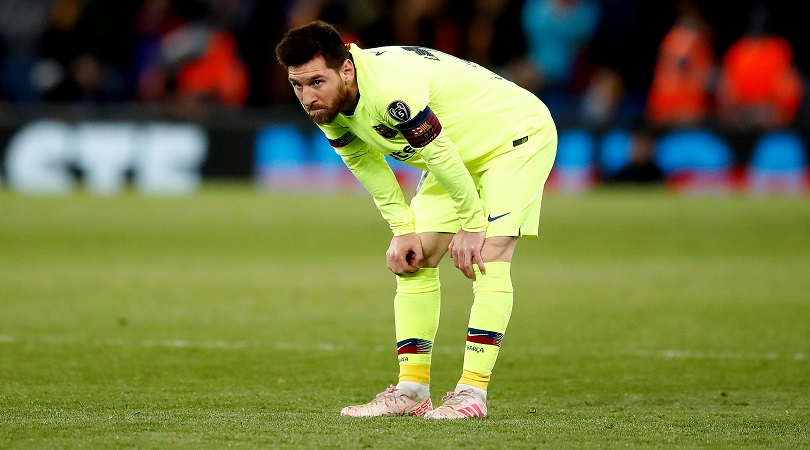
This article first appeared in the Autumn 2019 issue of FourFourTwo magazine. Subscribe now and get your first three issues for just £3!
Barcelona and Real Madrid may top La Liga, have qualified from their Champions League groups, and remain the top two football clubs in the world in terms of earnings – but it's widely accepted that neither side looks on top of their game. To carry on progressing in Europe's elite competition, they will need to sharpen up – hence Barca's decision to replace Ernesto Valverde with Quique Setien this week.
Here, Andrew Murray looks at what else needs to change at the Camp Nou and Bernabeu.
1. Integrate big-name signings
You can always judge how Barcelona and Real Madrid perceive the relative success of their previous season by taking a look at that summer’s dealings in the transfer market. Austerity means there was an acceptable amount of silverware won. If they’re splashing the cash like shopaholics at the Boxing Day sales, things probably haven’t gone very well.
That La Liga’s big beasts were comfortably Europe’s top spenders in the summer of 2019, each splurging eye-watering sums on players, is telling. Barcelona shelled out €255 million in transfer fees, while Real Madrid’s expenditure tipped €300m.
Spending twice as much as Manchester City this summer is a tacit admission of guilt from Madrid president Florentino Perez. Eden Hazard was the headline arrival, but Luka Jovic, Ferland Mendy, Eder Militao and 18-year-old wonderkid Rodrygo each commanded fees north of €40m, even though they were all signed with the future in mind, with the Rodrygo deal agreed as far back as June 2018.
Get FourFourTwo Newsletter
The best features, fun and footballing quizzes, straight to your inbox every week.
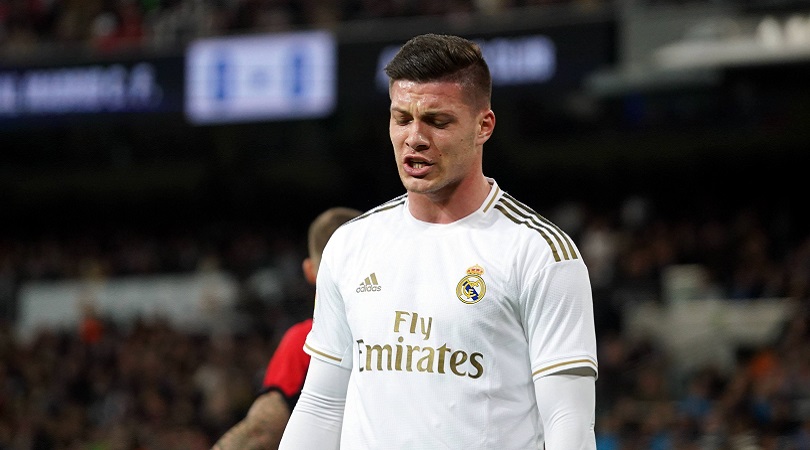
But the new signings have, for the most part, been conspicuous by their absence from the starting XI in the early stages of the season. Coach Zinedine Zidane has been especially loyal to the players who secured three Champions League trophies during his first spell in the Bernabeu dugout.
Not even Hazard, Real’s joint-record signing and the one guaranteed starter from their summer spree, has been immune from criticism. Returning from his holidays 7kg overweight, the Belgian’s pre-season form was poor and he soon picked up an injury. On his first start, the embarrassing 3-0 Champions League defeat to Paris Saint-Germain, he shuffled around the Parc des Princes to little effect. “Innocuous,” El Mundo Deportivo wrote the following day. L’Equipe gave him 2/10.
The new recruits were supposed to inject genuine competition for places in a trophy-laden but ageing squad. “Despite the investment,” wrote Marca only a month into the campaign, “a lot of the signings are just substitutes for the old guard. Zidane’s revolution is in danger of becoming half-hearted because he didn’t get what he wanted.”
Meanwhile, Barcelona’s 2018/19 season may have seen them bag a fourth league title in five years, but a chastening Champions League semi-final defeat to Liverpool meant that rebuilding was inevitable. Real Madrid’s European triumphs have made continental competition the priority at the Camp Nou.
Unlike Zidane, Blaugrana boss Ernesto Valverde was quick to hand game time to Antoine Griezmann, Frenkie de Jong and Junior Firpo, but the newbies struggled to gel. Barça trailed in four of their first five league games, their seven-point return representing the club’s worst start to a domestic season in 25 years. As for their goalless Champions League draw at Borussia Dortmund, to say Barça looked inert makes helium, neon and other noble gases sound busy.
It’s true that Griezmann bagged a brace on his home debut in a 5-2 win against Real Betis, and that he has worked hard to rebuild bridges in Catalonia having turned down Barça so publicly in the summer of 2018, but the €120m arrival from Atletico Madrid has often appeared isolated. Crucial to his adaptation will be how he dovetails with captain Lionel Messi, who is believed by some to have preferred Neymar to return from PSG instead.
Griezmann has said that playing with Messi was the biggest reason why he joined the club, but he wouldn’t be the first Barça signing not to adjust to servicing their superstar. Of the Catalan club’s 21 signings between 2015 and 2018, only six – Samuel Umtiti, Ousmane Dembele, Nelson Semedo, Arthur, Clement Lenglet and Arturo Vidal – remain at the Camp Nou. Philippe Coutinho lasted only 18 months, and fellow Brazilian Malcom less than 12.
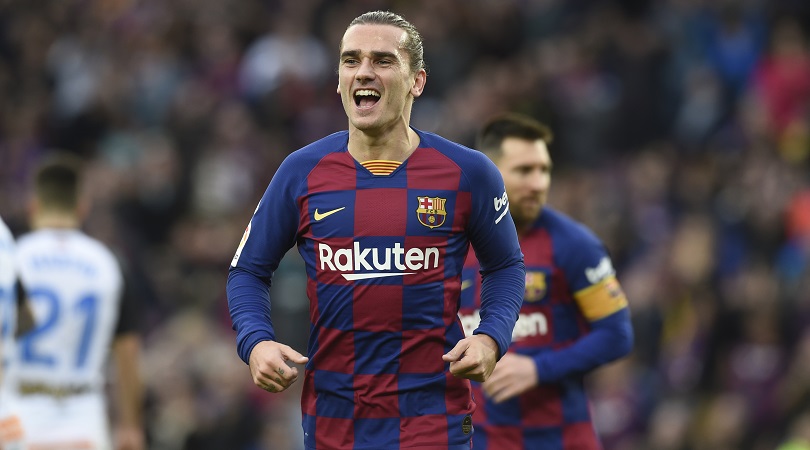
To their credit, the players have recognised the problem. Following the 2-1 win against Villarreal in late September, a dinner was arranged by the senior players for the whole squad to get to know each other – Griezmann, in particular. In short, if either club is to deliver the European success they each crave, Barça’s players must integrate emotionally while Real Madrid’s must do so physically.
2. Trust the next generation
Hazard and Griezmann aside, the transfer policy of both clubs was notable for the prevalence of under-25s, bought in the hope that they’ll develop into world-class talent within a couple of seasons.
Frenkie de Jong is already there. The Ajax academy product, still only 21, is the quintessential Barcelona midfielder: an expert passer who dictates a game’s rhythm. He was los Cules’ star in the season’s early stages – indicative perhaps of how low the valley, not how high the mountain, but impressive nonetheless. He’s a leader, personally apologising to fans for Barça’s poor start, and the perfect interior to play alongside Sergio Busquets and one other in a three-man midfield.
Ansu Fati, the 16-year-old prodigy, has also stepped up to the plate. Used as an impact substitute, the lightning-fast forward scored twice in his first three La Liga matches and is already a Blaugrana darling. So important has he become, Barça have been trying to ensure he’s called up to Spain’s Under-21s and not for the U17 World Cup in Brazil, so he won’t won’t miss a month of the season (born in Guinea-Bissau, he has just been granted Spanish citizenship). Fati broke Bojan Krkic’s record to become the club’s youngest ever Champions League player.
In Madrid, however, Vinicius Junior is the sole recent young arrival to be given regular minutes. Jovic was the most sought-after under-21 forward in Europe, but he then started just two of los Blancos’ first 10 matches. Mendy and Militao made the Real Madrid starting XI only when Marcelo and Sergio Ramos, respectively, were unavailable.
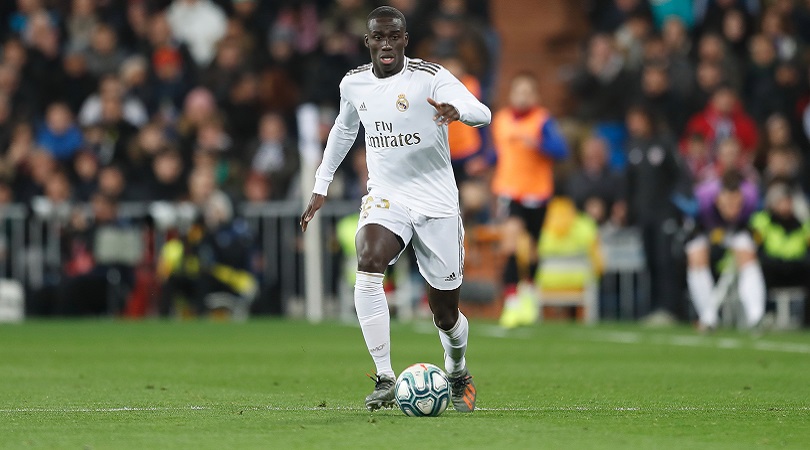
Zidane should take note of the performance of his ‘Plan B’ against Osasuna in late September. With the midweek tussle sandwiched between big away fixtures at Sevilla and Atletico Madrid, the manager gave starts to Militao, Alvaro Odriozola, Federico Valverde, Jovic and Vinicius, who scored along with substitute Rodrygo in an impressive display. Real Madrid went top of La Liga for the first time in 858 days, and shut out their opponents so completely that it was the second successive game in which they didn’t concede a single shot on target.
Compare this record, however brief, to that of Barcelona, who went into October without a league clean sheet, and it’s obvious who made defensive reinforcements in the summer instead of just papering over the cracks by buying attackers – and it’s not who you’d have expected.
3. Squeeze more from established stars
For young talent to truly excel when called upon, the recognised stars at Barcelona and Real Madrid alike must step up and offer the experienced, consistent bedrock that is a key requirement for Champions League success.
Worryingly for Barcelona, Lionel Messi is showing signs that he is mortal and not made of ethereal space dust (at least, no more than the rest of us). Now 32 years of age, the Argentine is picking up more injuries than at any previous stage in his stellar career, with the start to his 2019-20 campaign frustratingly stop-start. Messi injured his calf on the first day of pre-season after an extended post-Copa America break, then pulled a thigh muscle in his first start, against Villarreal.
Los Cules have to find a way to play without their captain, as minor knocks become more serious the older Messi gets. Messidependencia is nothing new – he has been the club’s top scorer for nine of the past 10 seasons and hit 51 of the Blaugrana’s 138 goals in all competitions last term – but it’s now a necessity, instead of an ideal, that Barcelona find a way to win without him.
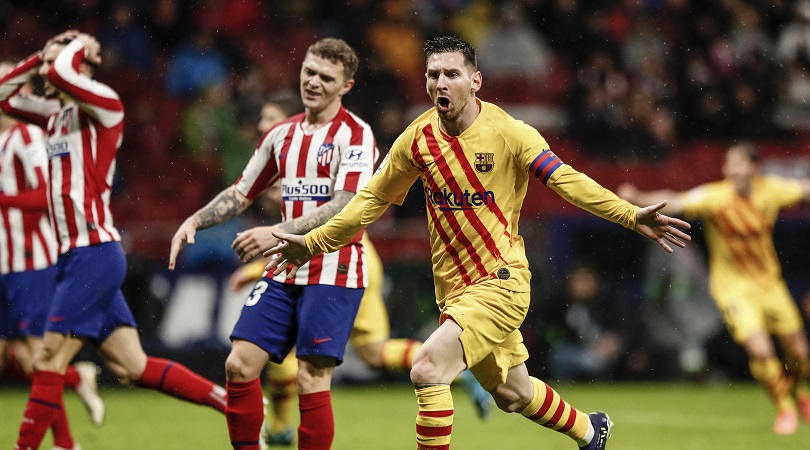
Gerard Pique is another senior player whose form has not been at the level required. And nor does it help that Luis Suarez appears to be terminally on the wane. The Uruguayan, five months Messi’s senior, is already in the club’s top five all-time leading scorers, but the knives are out – according to daily paper AS, he “has been served a warning”. When he was replaced by 16-year-old Ansu Fati, half his age, in the victory over Villarreal, Suarez was whistled from the pitch. Sections of the Barça faithful believe his relationship with Messi is so strong – the duo are best buds and neighbours – that the latter uses his significant influence at the club to keep his friend in the team.
Real Madrid’s own No.10 has similar problems. Luka Modric is now 34 years old and returned from September’s international break with a groin strain after playing every minute for Croatia. “It never rains with Modric,” lamented Marca, “but it pours.” Indeed, the 2018 Ballon d’Or winner’s form has been patchy since Croatia reached the World Cup final. Real Madrid even asked the Vatreni captain not to go away with his country in October’s round of international games, as they feared another injury.
One area in which Zidane had early-season success was in going at least some way towards repairing his strained relationship with Gareth Bale. The No.11 still feels let down by Zidane’s determination to move him on, but for now he has silenced the Bernabeu boos and forced his way back into the club’s first-team plans.
If Bale needs some inspiration, all the Welshman has to do is look at team-mate Karim Benzema. Once derided by former Blancos boss Jose Mourinho, who huffed, “If you haven’t got a dog and you’ve got a cat, you hunt with a cat”, the French marksman promptly notched five goals in the club’s first five league fixtures of the new campaign. After Benzema scored the only goal in a victory at Sevilla, the AS front page screamed: “The cat is now a lion.”
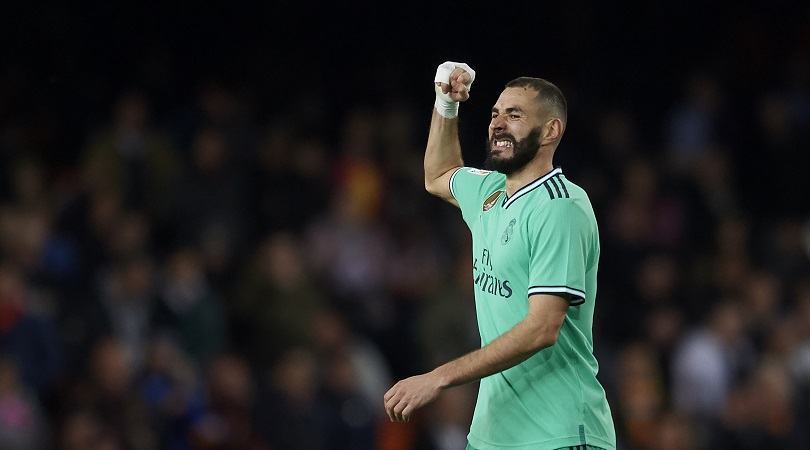
The reaction of the whole squad following the PSG debacle was no less impressive. Afterwards, Zidane demanded “intensidad, intensidad, intensidad” and he got it in back-to-back league wins against Sevilla and Osasuna, taking Real to the top of the table. His squad will need that intensity throughout the season – particularly Isco, the forgotten man who has had injury woes at the start of 2019-20.
4. Resolve off-field issues
If you thought the recent comings and goings at Westminster were pretty dramatic, they pale into insignificance when cast against the political machinations within Spain’s big two in lurching from feast to famine and back, sometimes within the same week.
“Zidane under scrutiny,” wailed Marca’s front page, two days after Real Madrid’s 3-0 defeat to Thomas Tuchel’s PSG. “The erosion of his legacy is underway. There was no improvement last season, and this summer proved the differences of opinion between coach and board. He has made bad decisions both on the field and in the corridors of power.” The paper went so far as to name Massimiliano Allegri, Raul – now Real Madrid Castilla manager – and even Jose Mourinho again as Zizou’s possible successors. A week later, Madrid topped the table.
Yet there was some truth in the overreaction. During his first spell as coach, Zidane’s greatest strength was his man-management. This time, he won few friends either among Madridistas or within the club for loaning out Dani Ceballos and Sergio Reguilon while selling Marcos Llorente – a dyed-in-the-wool Blanco whose great-uncle is six-time European Cup winner Paco Gento – to Atletico Madrid of all teams.
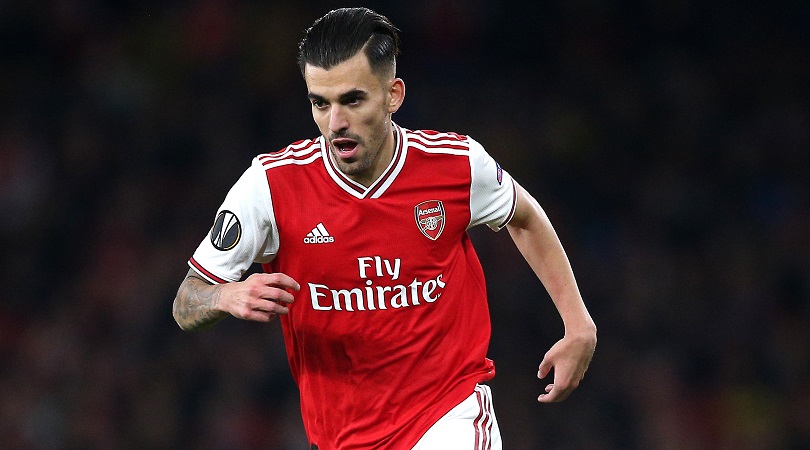
After Hazard, the one player Zidane wanted was Paul Pogba, despite Manchester United’s continued insistence that he was not available. Deals were arranged for Ajax midfielder Donny van de Beek and Spurs playmaker Christian Eriksen, but Zidane refused them. It was Pogba or nothing. Not even an embarrassing 7-3 pre-season loss to Atletico could tempt president Florentino Perez to try harder to secure Pogba.
“We’ve never invested as much in players, even though we already had a great squad,” said Perez after the Pogba-less transfer window slammed shut. “We’re going to be competitive, one way or another.”
That last phrase is instructive. When he retook the reins in March, Zidane’s position was impregnable. The saviour, who led Real Madrid to three Champions League titles in four seasons, had returned. Perez has always regarded the French deity as a surrogate son, and he was desperate, while Zidane was no less determined to ensure that the president’s alternative option – Jose Mourinho – wouldn’t get the gig. Yet results talk, as does a win rate hovering around only 50 per cent. A Cold War has developed in recent months.
Barcelona’s early-season form piled pressure on Ernesto Valverde, too, even though he had delivered back-to-back league crowns in his two Camp Nou seasons while adapting the style of play to something more pragmatic following Neymar’s departure to PSG. Barça, porous at the back and lacking creativity in attack, lost 2-0 to newly-promoted Granada to rack up a seventh successive away outing without a win, a run that began a few days before that harrowing defeat at Anfield.
“Barça are in reverse,” said El Mundo Deportivo, the Catalan sports daily. Tiki-taka master Xavi was already being discussed as a potential managerial replacement, having impressed in his first season in the dugout with Qatari side Al Sadd.
In the end, Valverde hung on until January 2020. Xavi reportedly turned the job down, and Barca turned to former Betis boss Quique Setien.
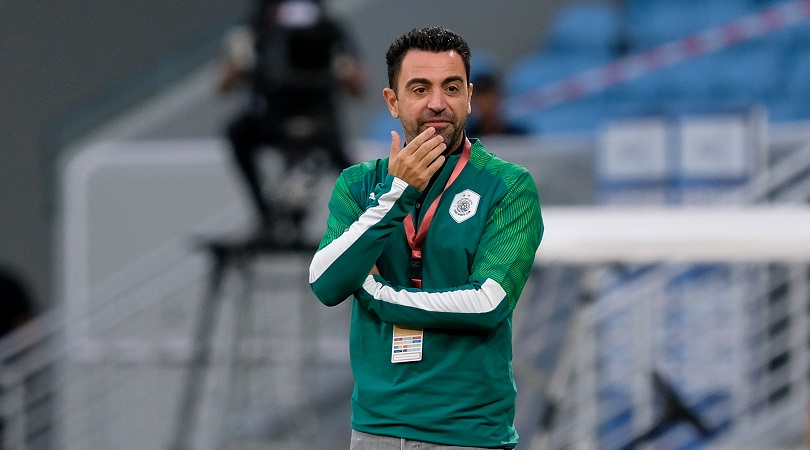
Not that the coach is the only issue in Catalonia. The investigation into whether Barcelona tapped up Griezmann before paying a reduced €120m clause for him in July was another unwanted distraction amid their poor start to the campaign. They were eventually fined an initial €300, which is half what you get for urinating in the street in Spain.
The political wheels are turning in the respective boardrooms, with elections due at both inside two years. For Josep Maria Bartomeu, in particular, it is crucial to keep the Blaugrana fanbase on board, as his popularity is severely on the wane.
5. Move on from Neymar
Yes, such is Neymar’s influence, this advice applies to both clubs.
Barça’s struggles stem partly from their clumsy attempts to bring Neymar back to Catalonia, despite the fact that he is still technically suing the club for breach of contract, relating to an unpaid bonus due just before his move to PSG.
That los Cules need a player of such outrageous world-class talent isn’t up for debate, but the manner in which they set about trying to recruit the 27-year-old has left a bitter taste. Few directors wanted to deal with Neymar and his entourage again but they were persuaded to do so by senior players, many of whom remain on good terms with their former team-mate and even offered to part-finance the transfer.
Bartomeu assured them that he would do everything he could to sign Neymar, but the operation dragged on, mainly because Barcelona didn’t have €200m to spend. According to Marca, the squad became increasingly disillusioned when wantaway Philippe Coutinho wasn’t included to bring down the fee. Instead, the Barça directors offered Ivan Rakitic, Ousmane Dembele, Nelson Semedo and Arturo Vidal to the Ligue 1 champions. Rakitic, whose status had since changed from guaranteed starter to transfer makeweight in a matter of weeks, was particularly miffed. He has taken some time to refocus.
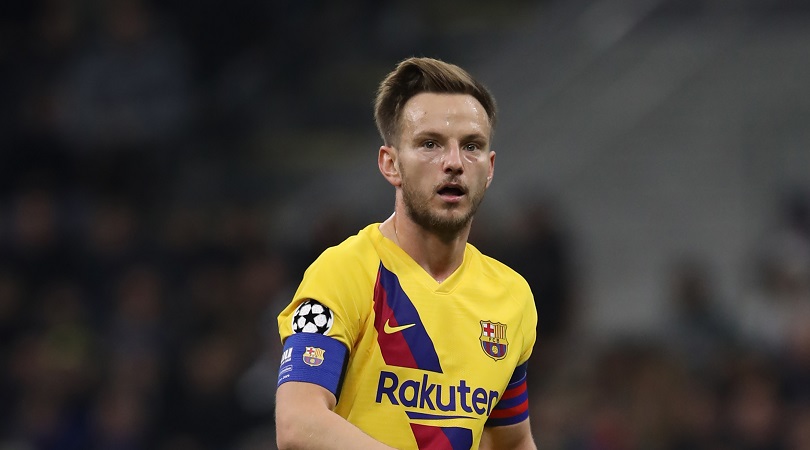
The saga also infected Real Madrid’s start to the 2019-20 campaign. Up until the final day of the transfer window, Neymar’s dad and agent were still in contact with los Blancos’ board, who were tempted by the idea of a Luis Figo-style coup.
With so many moving parts, it’s hardly surprising that Real Madrid and Barcelona won only one game apiece before the transfer window closed, with Zidane and Valverde sighing through press conferences dominated by Neymar rumours. Both clubs must put it behind them... until it all starts again next year.
6. Change the mentality
To say Barcelona have lost their identity is something of a facile argument. They have been comfortably the best team in Spain for two years – and were at least on a par with Zidane’s Real Madrid the first time around – but cracks which have nevertheless existed since the exits of Xavi and Andres Iniesta have now widened to the extent that they must be addressed.
The playing style is a mish-mash of Pep Guardiola’s cohort from the turn of the decade, but without the incision, and a more direct style which often cedes possession on the back foot. The ghost of Anfield looms large over all of this: one goal is all it takes, and all it took in the defeat against Granada. Barcelona went behind after just two minutes and they couldn’t recover.
Real Madrid have had their own crisis of mentality. Zidane used three different formations during Madrid’s opening three La Liga fixtures this season, which smacked of a confused mindset borne from a summer’s instability, and of a coach making a point. The Frenchman eventually settled on a 4-3-3, one predicated on the ruthless counter-attacking which characterised his first spell and the intensity that was so sorely missing against PSG in the Champions League.
Should Madrid or Barça ever feel confused, all either side must do is look at Diego Simeone’s Atletico for a team that is the representation of their manager, or Athletic Club of their people.
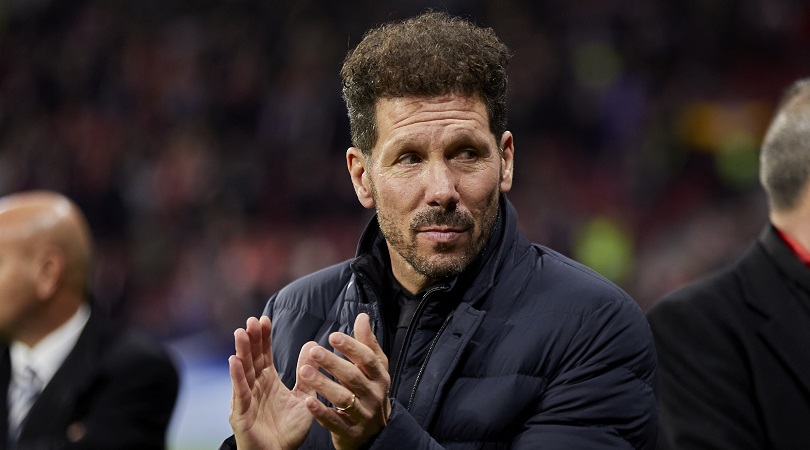
7. Avoid stadium renovation distractions
Both Real Madrid and Barcelona have announced rebuilding work on their respective stadia, in their latest efforts to keep pace with the Premier League’s financial clout and English football’s ability to create an atmosphere. The latter, in particular, is something that creates great envy among Spanish sides when the Champions League’s knockout stages swing around.
The Blaugrana’s Espai Barça project comprises an overhaul of their entire bricks-and-mortar operation. The 6,000-capacity Estadi Johan Cruyff – where the women and B team play – is now the centrepiece of the club’s Ciutat Joan Gamper training facility, while the Camp Nou will gain an additional 7,000 seats, as well as a roof which can harvest rainwater and solar energy.
The update for the Bernabeu is slightly more blue-sky, but promises a retractable roof, a 360-degree video screen that wraps around the inside of the ground, and a public plaza to replace a shopping centre. The Espai Barça project will cost €685m and won’t be finished until 2024, while Madrid’s project is so nascent that there is neither a cost nor a completion date attached to it.
Such off-pitch distractions are easy to manifest on it. Just ask two particular north London rivals.
8 Make better use of the academies
The talent is there. The pathway to the first team is less defined.
For Barça, whose identity (and a €30m yearly budget) is enshrined in La Masia providing a ceaseless production line of talent, this is of critical importance. When they faced Celta Vigo in April 2018 without a single player who was schooled at the academy, it made headlines, just as it did when they played 61 minutes of a 4-0 victory at Levante with 11 La Masia graduates back in 2012. At this summer’s Under-21 European Championship – which Spain won – not a single player was from Barcelona. “La Masia,” wrote Catalan daily paper Ara, “is sick.”
To an extent, Barça are victims of their own success. If you produce Xavi, Iniesta, Messi, Pique, Busquets, Victor Valdes and more, how can the next generation get into the first team? Since the end of La Masia’s apogee, Sergi Roberto is the only academy graduate to have featured regularly. Carles Alena, Riqui Puig and Oriol Busquets are three young midfielders so highly rated by the coaching staff – the former even as a future Barcelona and Spain captain – that they must get a chance to shine this term, as Ansu Fati has, or the club risks a further talent drain.
Thiago Alcantara is the most obvious, but Sergi Samper, Marc Bartra, Gerard Deulofeu – twice – and Denis Suarez all sought opportunities elsewhere following appearances for Barça. Andre Onana (Ajax), Jordi Mboula (Monaco), Hector Bellerin (Arsenal), Eric Garcia (Manchester City) and even Mauro Icardi (initially Sampdoria) all followed the path of a 15-year-old Cesc Fabregas in leaving early, still a long way from the senior team. This summer, 16-year-old Xavi Simons – seen as his namesake’s heir apparent – joined PSG from Barça to get game time.
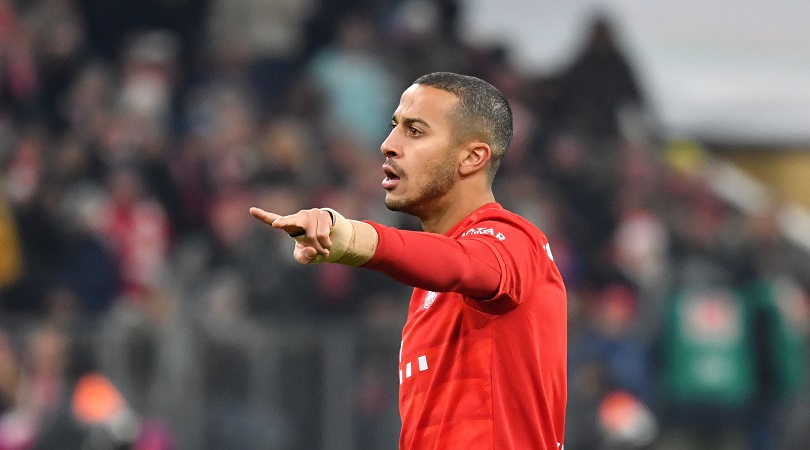
“We aren’t going to pay what some representatives are demanding – obscene numbers – to guarantee that a player who is already ours stays with us,” said idealistic general manager Pep Segura in June. He has since left the club, with the board annoyed by players’ defections.
Worse still for Barça, they seldom get a decent fee for these players, with only Thiago and Denis Suarez fetching fees in the tens of millions. The first-team pathway may not exist at Real Madrid, either, but they sell well. Alvaro Morata (€60m), Marcos Llorente (€35m), Jese (€25m), Theo Hernandez (€20m) and Raul de Tomas (€20m) have all left for big money since 2016, helping to fund the recruitment of new Galacticos.
You could argue, then, that los Blancos’ academy is doing just fine. The philosophical differences between the canteras is so ingrained, it even exists in their names. La Masia means ‘The Farm’ and La Fabrica is ‘The Factory’ – nature versus regimented nurture.
“To win is a skill of Real Madrid,” says Luis Miguel Ramis, their former defender and youth-team coach. “Maybe Barça have Cruyff. For Real Madrid, the most important thing is the history they have.” In other words: trophies. Winning is everything. Yet it can come at a heavy price.
La Liga’s best player over the first two months of 2019/20 belonged to Real Madrid, but didn’t play a single minute for them. Still only 20, Martin Odegaard has spent the past four campaigns on loan, but with two goals and what Marca’s front page called “a Galactico pass” in his first six matches for Real Sociedad, the Norwegian could be Madrid’s missing link. Zidane, who as Castilla boss didn’t always see eye-to-eye with Odegaard, was adamant he didn’t need him. They won’t have him until next season now. Time will tell whether that wait proves costly.
While you're here, why not take advantage of our brilliant subscribers' offer? Get the game's greatest stories and best journalism direct to your door – just £3 for the first three issues. Cheers!
NOW READ...
OPINION Once, he struggled for respect at Anfield – now Jordan Henderson is indispensable to Liverpool
QUIZ Can you name the 25 biggest January transfers involving English clubs?
GUIDE Premier League live stream best VPN: how to watch every game from anywhere in the world
Andrew Murray is a freelance journalist, who regularly contributes to both the FourFourTwo magazine and website. Formerly a senior staff writer at FFT and a fluent Spanish speaker, he has interviewed major names such as Virgil van Dijk, Mohamed Salah, Sergio Aguero and Xavi. He was also named PPA New Consumer Journalist of the Year 2015.
